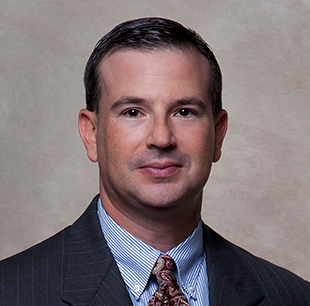FOURTH DCA DENIES ATTORNEYS’ FEES TO PREVAILING HOMEOWNER IN FORECLOSURE CASE

FOURTH DCA DENIES ATTORNEYS’ FEES TO PREVAILING HOMEOWNER IN FORECLOSURE CASE
By Robert Hauser
Litigation and Appellate Practice
Most lawyers probably believe that if they successfully defeat a foreclosure claim by asserting a “standing” defense, that they are entitled to recover their prevailing-party attorneys’ fees from the lender. No more.
Foreclosure litigation is still pervasive in the trial and appellate courts after the “crash” of 2008.
One of the most common and successful defenses in foreclosure litigation is the “standing” argument. This defense has been sustained in numerous appellate decisions. A homeowner successfully asserts the “standing” defense when the foreclosing plaintiff lender is unable to prove that it owned the note and mortgage at the time the foreclosure suit was filed. If there is no such proof, the foreclosure claim is infirm and must be dismissed. A judgment entered without proof of the plaintiff’s standing at inception will be reversed on appeal.
In today’s decision in NationStar v. Glass, No. 4D15-4561 (Fla. 4th DCA April 12, 2017), the Fourth District specifically wrote an opinion denying attorneys’ fees to the prevailing homeowner. According to the opinion, the trial court had dismissed the lender’s foreclosure case for lack of standing. The lender appealed that determination. The lender then voluntarily dismissed its appeal. The homeowner moved to collect prevailing party attorneys’ fees.
In denying fees, the Fourth District ruled that “where a party prevails by arguing the plaintiff failed to establish it had the right pursuant to the contract to bring the action, the party cannot simultaneously seek to take advantage of a fee provision in that same contract.” In other words, it equated the involuntary dismissal with a finding that the homeowner and the Bank were not parties to a fee-shifting agreement (i.e., the note and mortgage) such that fees could be awarded. Click here for the opinion. Because appellate fees are being denied, the “law of the case” doctrine means that trial court fees will not be recoverable.
In my opinion, today’s decision is legally and logically flawed. A standing defense, even when asserted, does not automatically mean that the plaintiff / lender and the borrower were never parties to a fee-shifting agreement such as a promissory note or mortgage. It means only that the lender, when it had the burden of proof, failed to demonstrate that it held the note and mortgage on the date that the foreclosure lawsuit was filed. And that does not necessarily mean that the lender does not have standing; it means only it could not demonstrate that it had standing at the inception of the case.
Moreover, even a lender who lacked standing at the inception of suit may now be party to the mortgage, note and fee-shifting obligations at the time of the fee claim and at other relevant times. That is why attorneys’ fees have been awarded in other standing cases. In Bank of New York v. Williams, 979 So.2d 347 (Fla. 1st DCA 2008), attorneys’ fees were held payable. In Williams, “[t]he Bank’s complaint and amended complaint were dismissed without prejudice on the ground that, because the Bank failed to show that it owned the mortgage and associated promissory note, the Bank lacked standing to institute the foreclosure action.” Id. at 347. And in Nudel v. Flagstar Bank, FSB, 60 So. 3d 1163 (Fla. 4th DCA 2011), the Fourth District awarded attorneys’ fees after a standing defense was successfully asserted.
In today’s decision in Glass, the Fourth District attempted to distinguish Nudel, explaining that “[t]he result is different when the plaintiff was also the originating lender.” But in my opinion, the Court’s attempt to distinguish Nudel does not justify a different result. Nudel reasonably holds that the original lender may be subject to fee-shifting if it erroneously brings suit to foreclose. In other words, fee-shifting can survive the sale of the note and mortgage to a successor holder. But Glass is an even stronger case, not a weaker case, for fee-shifting than Nudel. If the lender is now a party to the note and mortgage, but simply failed to prove that it was the holder of the note and mortgage at the time suit was filed, there is absolutely no justification to deny the borrower’s prevailing party claim for attorneys’ fees if the foreclosure is dismissed.